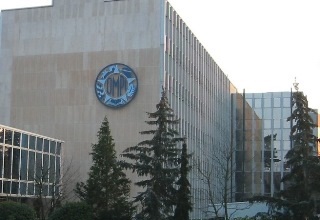WIPO calls for member states to help create a standardised IP ecosystem
Updated: Jan 15, 2015 12:32:41pm

“The world is today experiencing rising demand for Intellectual Property Right (IPR) as innovation has become the basis of competition. The enhanced economic value and role of knowledge-based capital also means that innovation and IP are increasingly the focus of competition,” said Director General, WIPO, Francis Gurry.
“The number of patent filing worldwide has seen an unprecedented upsurge, which makes it imperative for all member states of World Intellectual Property Organization (WIPO) to agree to an operational IP system. The member states must come forward to create a standardized functional IP ecosystem,” he added, according to an official release on January-14.
Gurry delivered the keynote address at the two-day international conference on ‘Leveraging Intellectual Property for Enterprise Growth and Competitiveness.’
The international forum, organised by FICCI, in association with World Intellectual Property Organization (WIPO) and Department of Industrial Policy and Promotion (DIPP), Government of India, focused on bringing forth the modes of leveraging and strategic advantages of intellectual property in increasing business competitiveness and growth. Competition is intense and today’s knowledge economy rewards those who understand the importance of intellectual property and its role in differentiation and adding value to their products.
Gurry further said that the general environment of IP was founded on centrality, innovation, complexity and political will. WIPO was focusing on IP issues across the world keeping in mind these components of the IP environment.
The centrality of IP to the economy has led to increased demand for IP titles and much greater focus on IP in economic strategy. This can be seen in IP statistics, which show that, in 2012, 2.35 million patent applications, 6.58 million trademark class applications and 1.22 million design applications were filed worldwide. Growths rate in IP applications continue to outperform the growth rate of the world economy. These volumes of applications make demand management a major priority to ensure the timely delivery of quality IP titles. This priority will see an expansion in the Global IP Systems of WIPO – the Patent Cooperation Treaty (PCT), the Madrid System for trademarks and the Hague System for designs. The systems will attract higher percentages of those applications that are filed in multiple countries as their global reach will make them more attractive and cost-effective, he informed.
He added that WIPO was also actively engaged in building and developing IP capacity and providing technical assistance to the developing nations to strengthen their IP regime.
Also speaking on the occasion, Secretary, Department of Industrial Policy and Promotion (DIPP), Ministry of Commerce and Industry, Amitabh Kant said that recognizing the need to scale up the process of IP creation and increase commercialization of the technology that is development, the government has embarked on the process of preparing a National IPR Policy.
We expect it to be a visionary document that can guide the journey of India towards becoming an innovative economy in next 10 years. The first draft of the policy has already been submitted and has been placed on the website of this department for comments of the stakeholders and other interested persons, he said.
He stated that firm steps will be undertaken to reduce backlogs and pendency in the patent and trademark offices. One of the major reasons for the backlog has been that human resources in the IP office could not keep pace with the increase in fillings. While this is being addressed by the government with the sanction of more than 1000 posts in the 12th Plan, further steps to address pendency through a mission mode is also under process.
As far as trademarks are concerned, the government has approved hiring of 100 contract examiners. The induction of these examiners will allow the office to liquidate its pendency in examination of trademark applications.
“In respect to patent applications, we should also be in a position to announce the measures to be undertaken to address pendency,” added Kant.
Offering her comments, President, FICCI Dr. Jyotsna Suri said that intellectual property today was the driver of economic growth and sustainability and had gained centre-stage all over the world. India also now had a climate conducive for innovation. The setting up of the IPR Think Tank and the extensive work underway to upgrade the IP administrative infrastructure to make it more service oriented and user friendly was expected to establish a dynamic, vibrant and balanced intellectual property system in India that would foster innovation and creativity in a knowledge economy, and accelerate economic growth, employment and entrepreneurship.
Among the dignitaries who addressed the conference were Chairman, FICCI IPR Committee, Narendra Sabharwal; Controller General of Patents, Designs and Trade Marks, Chaitanya Prasad; experts from WIPO and international organizations, senior government officials and others from Indian industry. (KNN/ES)












